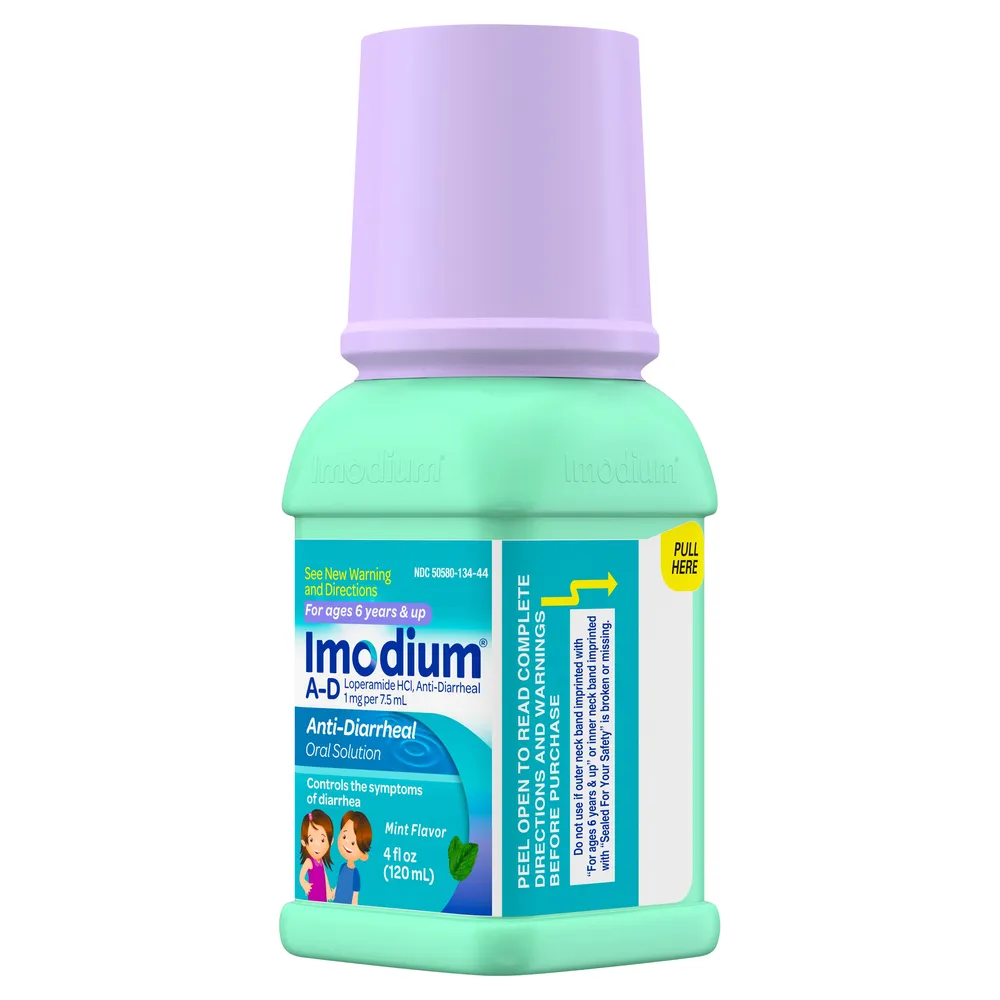Imodium: An In-Depth Overview
Introduction to Imodium
Imodium is a well-recognized over-the-counter medication primarily utilized for the management of diarrhea. It is often the go-to option for individuals seeking quick relief from this unpleasant and sometimes debilitating condition. Diarrhea itself is not a disease but a symptom of various underlying conditions, often characterized by increased bowel movements and stool liquidity. The use of Imodium has become widespread due to its effectiveness in quickly alleviating these symptoms, thus playing a significant role in improving patient quality of life.
Diarrhea can be classified as either acute, lasting less than four weeks, or chronic when it persists beyond that timeframe. The causes of diarrhea are multifaceted, ranging from infections like those caused by rotavirus or Escherichia coli, to functional bowel disorders such as Irritable Bowel Syndrome with diarrhea (IBS-D), and other non-infectious causes Read more here. Imodium, which contains the active ingredient loperamide, acts to diminish fecal urgency and frequency, thus proving to be an effective treatment for various types of diarrhea.
What is Imodium
Imodium’s active ingredient, loperamide, is a synthetic opioid-receptor agonist. It primarily operates by binding to opioid receptors in the gut wall, which leads to reduced peristalsis—a series of wave-like muscle contractions that move food through the digestive tract. This action significantly slows down bowel movements and enhances the absorption of fluids and electrolytes, hence reducing stool volume and frequency
Read more on how Imodium works here.
Given its mechanism, Imodium is carefully formulated to focus its effects on the gastrointestinal tract, minimizing systemic penetration into the central nervous system. This makes Imodium a generally safe option for many users, avoiding the psychoactive effects typical of other opioids. Nonetheless, it is crucial for users to adhere to recommended dosages, as excessive consumption could result in severe side effects and complications.
Approved Uses for Imodium
Imodium is approved for managing diarrhea, especially non-specific acute diarrhea and chronic diarrhea related to conditions like IBS-D AGA Guidelines. It also finds applicability in controlling diarrhea that is symptomatic of inflammatory bowel disease, as it helps manage stool discharge volume post-surgery, which can often be voluminous and inconvenient.
For patients with IBS-D, loperamide aids in moderating symptoms by reducing bowel movement frequency and alleviating the associated urgency, thereby enhancing patient comfort and enabling them to engage in daily activities more freely. However, because evidence supporting its use in IBS-D is of very low certainty, it is often used in conjunction with other treatment modalities under medical guidance.
Moreover, Imodium can be useful in managing diarrhea related to viral gastritis, often providing symptom control while the body naturally resolves the viral infection. In all these scenarios, the pivotal role of Imodium is alleviating distress and reducing the number of bowel movements to empower patients to maintain a semblance of normalcy in their daily routines.
How Does Imodium Work
Imodium functions primarily through its active compound, loperamide, which provides relief by affecting the gut’s opioid receptors. This opioid receptor interaction decreases the muscular contractions of the intestinal wall, known as peristalsis, ultimately slowing down the transit time of intestinal content.
Loperamide’s Actions and Physiological Effects
-
Reduction of Peristalsis: By decreasing peristaltic activity, loperamide enables a longer contact time between the intestinal contents and the absorptive tissues of the gut. This increased contact time permits greater reabsorption of fluids, thereby solidifying the stool and diminishing stool frequency.
-
Enhancement of Sphincter Tone: Loperamide also increases the tone of the anal sphincter, reducing fecal urge and potential incontinence episodes, which is particularly beneficial for patients with diarrhea-induced urgency and accidents.
Avoidance of Systemic Effects
A unique aspect of loperamide, which sets it apart from other opioids, is its minimal penetration into the central nervous system. This trait is largely due to P-glycoprotein, a transporter protein that prevents loperamide from crossing the blood-brain barrier. Consequently, its central depressant actions are negligible, allowing it to operate mainly within the intestines.
Clinical Considerations
While Imodium is largely beneficial in managing diarrhea symptoms, responsible use is paramount. It is crucial to recognize that Imodium does not treat the underlying cause of diarrhea and is not always appropriate for all types, such as bacterial or parasitic infections where specific antibiotics or antiparasitics are indicated here. Additionally, prolonged use without medical oversight can lead to complications such as constipation, megacolon, or even toxic megacolon, especially in cases involving severe colitis or other inflammatory conditions More information here.
Therefore, users must heed the advised dosages and be aware of their health context. Imodium should be employed judiciously, usually in conjunction with other supportive care measures like hydration, dietary modifications, and, when necessary, specific medical evaluations to address the diarrhea’s etiology effectively.
Imodium Clinical Trials
Clinical trials play a vital role in understanding the efficacy and safety of medications like Imodium (loperamide). It’s crucial that we delve into this aspect to appreciate the scientific backing and regulatory approval of this widely used antidiarrheal medication. Clinical trials typically involve several phases, each designed to assess different parameters, including dosing, safety, efficacy, side effects, and comparison with other treatments.
Overview of Clinical Trials for Imodium
Loperamide’s effectiveness in symptom reduction for acute and chronic diarrhea has been comprehensively assessed in various clinical trials. One key aspect evaluated is its impact on diarrhea frequency and stool consistency. Early trials and subsequent studies established loperamide as highly efficacious in reducing symptoms of acute diarrhea by enhancing fluid absorption in the intestines and diminishing peristaltic movements.
Clinical trials have illustrated strong outcomes, particularly for specific patient subgroups, including those with irritable bowel syndrome (IBS) with diarrhea (IBS-D) and inflammatory bowel disease. These subgroups demonstrate significant improvements in both stool frequency and urgency.
In the context of IBS-D, the trials have provided mixed results, often due to the multifactorial nature of IBS. Nevertheless, patients generally experienced a decrease in symptom severity and an improved quality of life when utilizing loperamide here.
Specific Study Findings
A noteworthy trial detailed loperamide’s effect within the cohort of travelers experiencing diarrhea, commonly referred to as travelers’ diarrhea. This study highlighted the drug’s role in shortening disease duration and reducing episodes when used effectively at the onset of symptoms here.
Another critical trial involved assessing loperamide’s safety profile. Systematic reviews and meta-analyses have consistently favored the safety of recommended doses of loperamide, with a low incidence of constipation and other gastrointestinal symptoms. Safety in long-term use, however, remains cautioned against due to potential complications associated with prolonged gut motility inhibition.
The Side Effects of Imodium
Despite its efficacy, like all medications, Imodium is accompanied by potential side effects, an important consideration for clinicians and patients alike. A detailed understanding of these side effects can guide better usage and inform patients when necessary to seek medical advice.
Common Adverse Effects
- Constipation: One of the most common side effects due to the reduction in peristalsis and increased water absorption, often necessitating dose adjustment or discontinuation here.
- Nausea and Abdominal Pain: Occur occasionally and are manageable through symptomatic treatment or dose modification.
- Dizziness and Drowsiness: While less common, they are known side effects that patients should be aware of, particularly when operating machinery or driving.
Serious, but Rare Side Effects
- Paralytic Ileus: Particularly in cases of overdose or in patients with certain inflammatory bowel diseases, vigilance is required.
- Toxic Megacolon: A potentially life-threatening condition, especially in patients with acute ulcerative colitis.
Recognition of these side effects is crucial, and patients are advised to seek immediate medical attention if they experience severe symptoms.
Comparative Analysis
When comparing Imodium to other antidiarrheal agents, several factors need consideration: the onset of action, efficacy, side effect profile, and suitability for specific patient populations.
Comparison with Other Agents
-
Bismuth Subsalicylate: Commonly known for its mild antidiarrheal properties, bismuth subsalicylate (Pepto-Bismol) is often used for mild cases. Unlike loperamide, it also possesses antimicrobial properties here.
-
Charcoal: Activated charcoal is less common but can adsorb toxins in infectious diarrhea, although it has limited use in non-infectious cases here.
-
Rifaximin: An antibiotic effective against specific bacterial causes of diarrhea, especially travelers’ diarrhea from E. coli, also showing benefits when reducing IBS-D symptoms as a different mechanism of action compared to loperamide here.
Suitability and Efficacy
Each of these agents has its niche:
- Imodium is preferred for fast, dependable symptom relief, making it suitable for acute cases with a rapid action.
- Bismuth Subsalicylate is often used in mild cases and preventive scenarios, like travelers’ diarrhea.
- Rifaximin is ideal when bacterial involvement is suspected or confirmed.
The choice of agent should be personalized based on patient history, the severity of symptoms, and specific medical advice.
Conclusion
Imodium has cemented its place as a pivotal medication for diarrhea symptom management due to its robust efficacy in decreasing bowel movement frequency and urgency. Nonetheless, its use should always be informed by clinical discretion, recognizing the potential side effects and limitations in specific conditions, such as severe IBD cases. Comparatively, loperamide remains a versatile tool in the clinician’s arsenal, especially against acute and chronic diarrhea symptoms, contributing significantly to patient comfort and quality of life.
For patients and healthcare providers, Imodium offers a readily available and effective means to manage diarrhea-related symptoms, provided its use aligns with appropriate indications and safety guidelines here. This careful balance of efficacy, safety, and individual patient factors underpins the proper application of loperamide in clinical practice.








